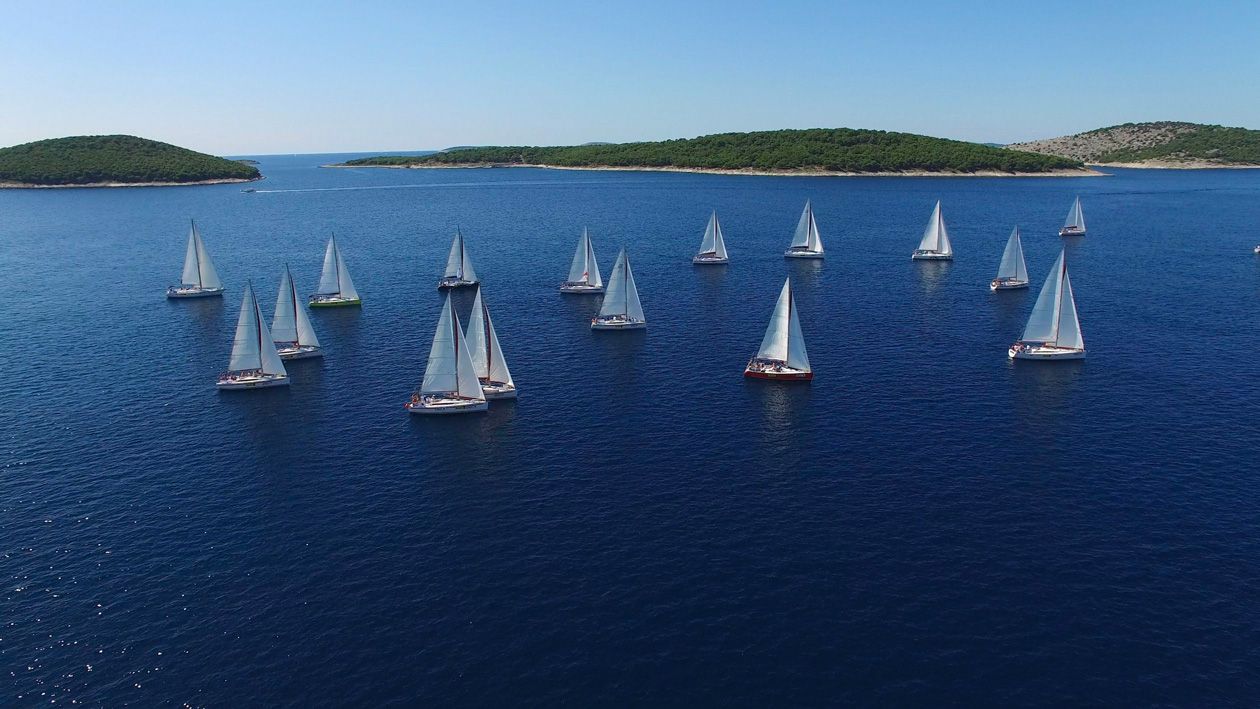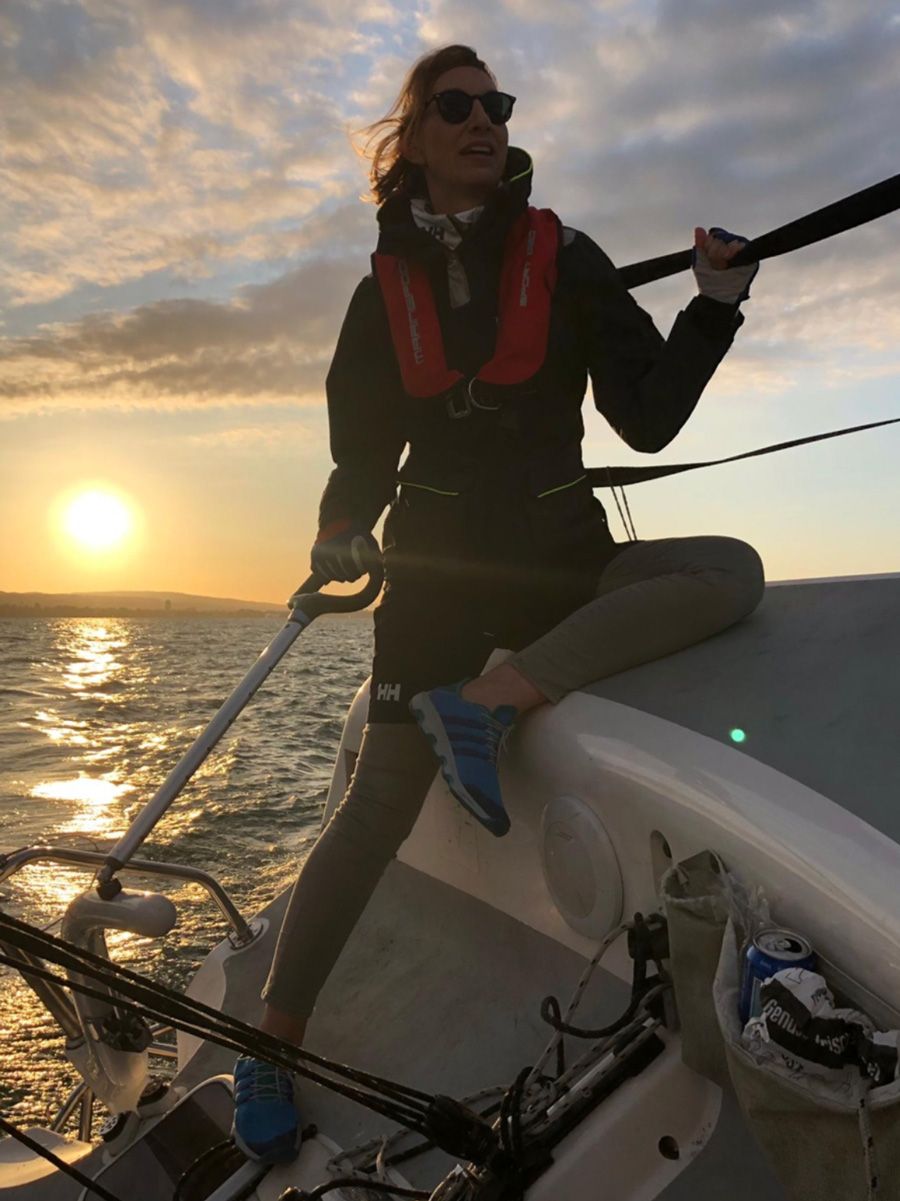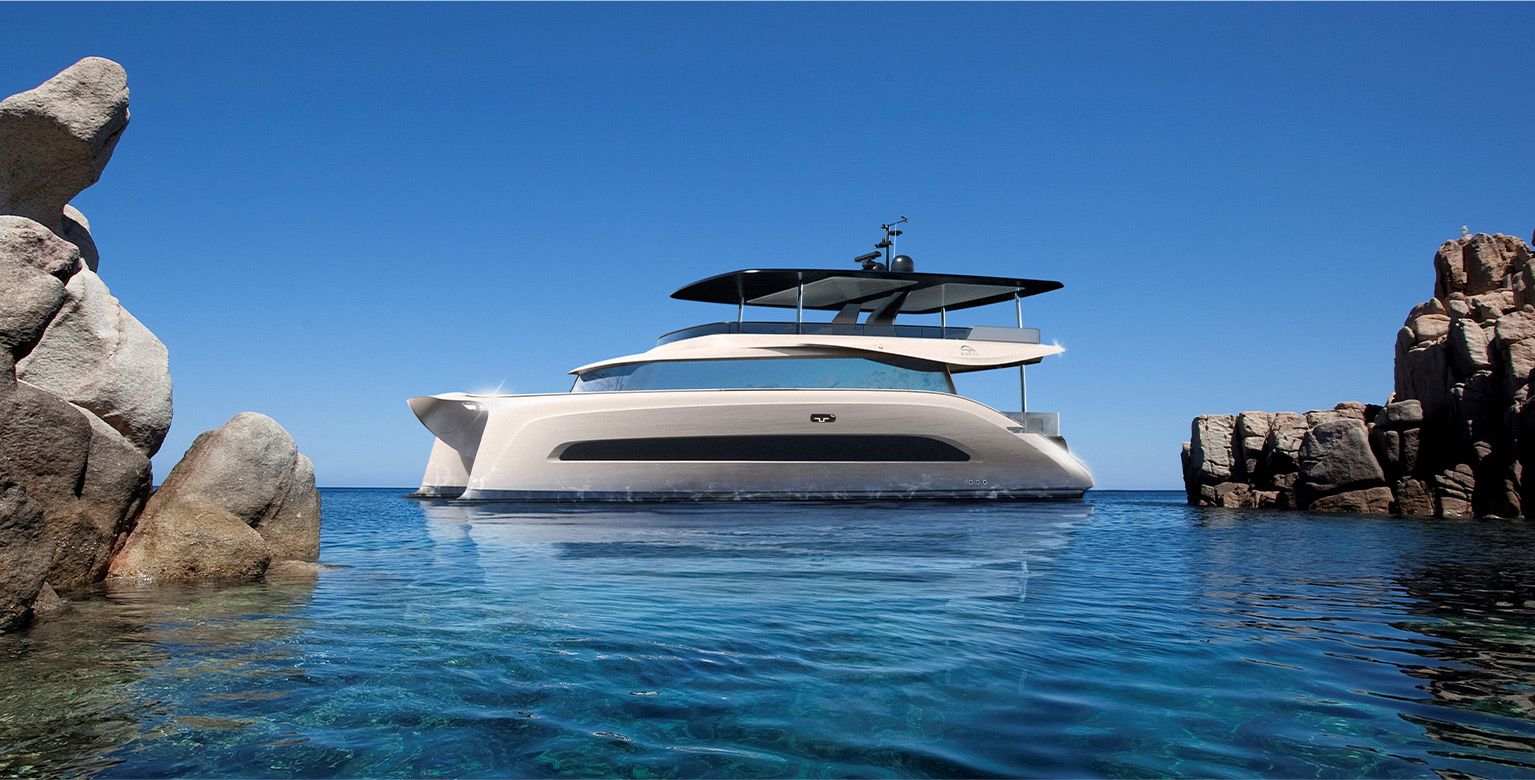June 5, 2023
Modern yachting – a philosophy by Dr. Sabrina Funk

A philosophy
A (super)yacht represents a significant value due to its purchasing price, and it means the ‘cherry on the cake’ for every ultra-high net worth induvial. Yachting is still a luxury product, while the way of yachting will change in my opinion.
If I think about a superyacht as an asset nowadays, I would implicitly look at it from an end-2-end perspective?
What is the focus of my (business) life?
Do I care for environmental, social and governance (ESG) issues, or even do I have to? If so, is it a general direction of my companies, portfolios and wealth management?
Do I want to be a role model, a thought leader, and do I care for my children, grandchildren – the next generation?
Assets, including yachts and superyachts need to become more sustainable in many aspects: Design, materials, propulsion as well as operations. Green methanol and green hydrogen will be seen as new fuel options. Sustainability trainings for crew being offered already. Emissions to be measured and efficiency processes to be implemented based on the data.
We only have one ocean. Keeping the fun and relaxing part at sea, but also caring for the ocean and the climate by reducing the emission to net zero. Implementing a net zero strategy to my assets, and changing behaviour based on respecting the ocean and cetaceans. Do I want to be a pioneer, a trend leader and show friends and family the new direction of yachting?

“Slow yachting” might be the new trend, and sailing to become more popular.
Another angle I can look at it: Do I care about my reputation as a company owner or in case of a listed company, the stock value? What if climate activists identify my private life as not as “sustainable” as my company “seems to be” with its ESG report?
In the professional Financial Services world are first signs: Banking and Insurances have already set a statement with the initiatives of the Poseidon Principles for Banking (PPB) and Maritime Insurances (PPMI). They will now ask for emission data and index the asset. Then, more and more owners have to think about a strategy for their asset to become net carbon zero aligned with International Maritime Organisation (IMO) goals, not ending with a stranded asset. Even it is not mandatory today, the risk of not being compliant with potential future regulations certainly has an impact on the resale value and running costs or restrictions to access to specific and attractive locations.
What are my short-, medium- and long-term milestones?
Do I care for changing the onboard operations, implementing software to optimise efficiency and thinking about refitting, new propulsion with new e-fuels in a few years from now.
Do I have to set up accruals according to my net zero plan / investments, thinking about chartering and reselling price?
In my opinion, as mentioned above, yachting will remain one of the most luxurious activities for leisure one can own. A five-star service onboard can be experienced while exploring wonderful or exotic areas at sea.
Still, it will become more and more challenging not caring about the ocean. Marinas more and more do care also to create acceptance among the residents. Electric propulsion will be necessary to get into the harbours, like electric propulsion in cars to get into cities. Fines and higher prices will become a standard for normal diesel engine yachts. For cruise ships green energy D/C is mandatory in the marinas instead of running the generators with diesel to reduce emissions. Nature reservoirs in Norway, for example are already restricted for normal diesel engines. Initiatives for speed reduction in coastal areas in Italy and France are ongoing. We can see a trend here… it has started already. Not only in maritime, but also in yachting.
A new trend, a new behaviour can be seen in – at least so far some – owners, and especially few charter clients: Slow down, reduce emissions, enjoy the nature and the moment. Stress and pressure will be switched off and move into slowing down – slow yachting. Being in tune with nature. Sailing, cruising in a reduces speed on motor yachts driven by hydrogenated vegetable fuels (HVO), on electric driven yachts or – even better – on a new technology catamaran, driven by the sun and hydrogen, without refilling, go wherever I want… just the weather needs to be on my side, independent of refilling infrastructure.

With AQUON and MYSEA.
Sabrina spent her school holidays at the North Sea, learned sailing during her studies and finished her RYA Yachtmaster Coastal Sailing last year. Being one with the sea and using natural forces is what she loves; the feeling of natural forces and physics creating movement inspires her.
Combine this passion with strategical experience in finance, business management, sustainability and transition of industries, and you will know her strengths. She wrote a PhD about the paradigm shift of the German energy system: It has an impact on utilities to break away from existing supply-driven delivery and product structures to enable them to meet demand driven market characteristics. This requires investments into the intelligent interconnection, control and storage of decentralized energy supply options. Cross-sector partnerships and collaborations to be emphasized. The focus will be on a future of sustainable renewable energy & cloud based digital solutions.
This background helps her to understand the necessity of a fully independent energy system creating green energy, usable in immobile and mobile and solutions like AQUON. The future of yachting needs to be modern, green and ready for next generations.
Therefore, Sabrina fully dedicated her professional life to her passion: The sea and sustainable yachts; she became a yacht broker.
Her focus: Sail, hybrid and net zero yachts.
Are you ready to enjoy the future of yachting?
Contact our broker and have all the information you need.
Have some questions?
Swiss Sustainable Yachts AG
Brandschenkestrasse 24
8001 Zürich, Switzerland
contact@aquon.ch
+41 798 090 808
2022©Sustainable Yachts AG. All rights reserved.
